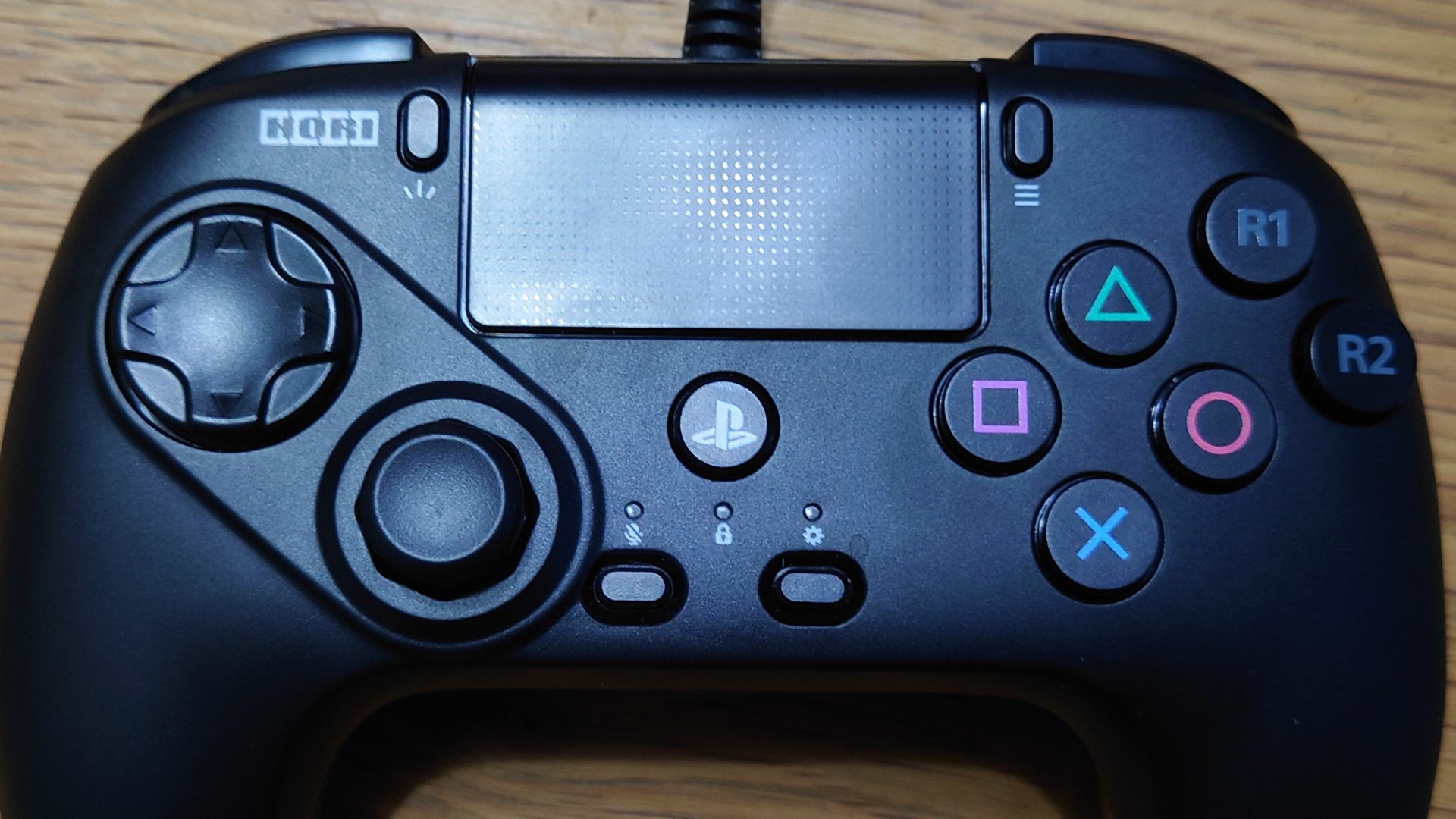GamesRadar+ Verdict
The Hori Fighting Commander Octa is a solid performer for the FGC faithful, however, with its cheap build quality and less-than-stellar D-pad, it isn't quite the standard controller replacement it could have been.
Pros
- +
Affordably priced
- +
Microswitch face buttons
- +
Wired for lag-less input
- +
Precise 8-way analog stick
Cons
- -
Cheap build quality
- -
Mediocre D-pad
- -
Hollow
Why you can trust GamesRadar+
The Hori Fighting Commander Octa is a serviceable wired gamepad aimed at dedicated fighting game fans on all systems. With its 6-button layout, complete with microswitches no less, and competitive price point, there's a lot to like about what it brings to the table. However, with dubious build quality and some missed potential in a few spots, it misses out on being one of the best PC controllers or an essential PS5 accessory, either.
Design
Upon first glance, there's little that stands out about the Hori Fighting Commander Octa when compared to previous gamepads in the lineup. Look closer, though, and that titular octa-gate makes itself known on the left-hand side; this new addition is easily the standout of this new fight pad. Short travel is the name of the game here as you don't need to move this highly accurate eight-way gate stick much to input properly, but more on the performance later.
As expected from an Esports-focused controller, similar to the likes of the Razer Wolverine line and Nacon Pro Revolution X, the Hori Fighting Commander Octa is wired. Although the cable doesn't detach, as with some other models, the lead included here is of a generous 10ft length, so distance isn't likely to be a problem.
A particular highlight of the Hori Fighting Commander Octa compared to your usual affordably priced pad is the inclusion of microswitches in the face buttons, which are laid out in a 3 x 3 fashion. There's a satisfying click to the square, triangle, X, and O inputs, with R1 and R2 just a hair away as well. The low actuation force ensures that there's minimal delay when pressing down, too.
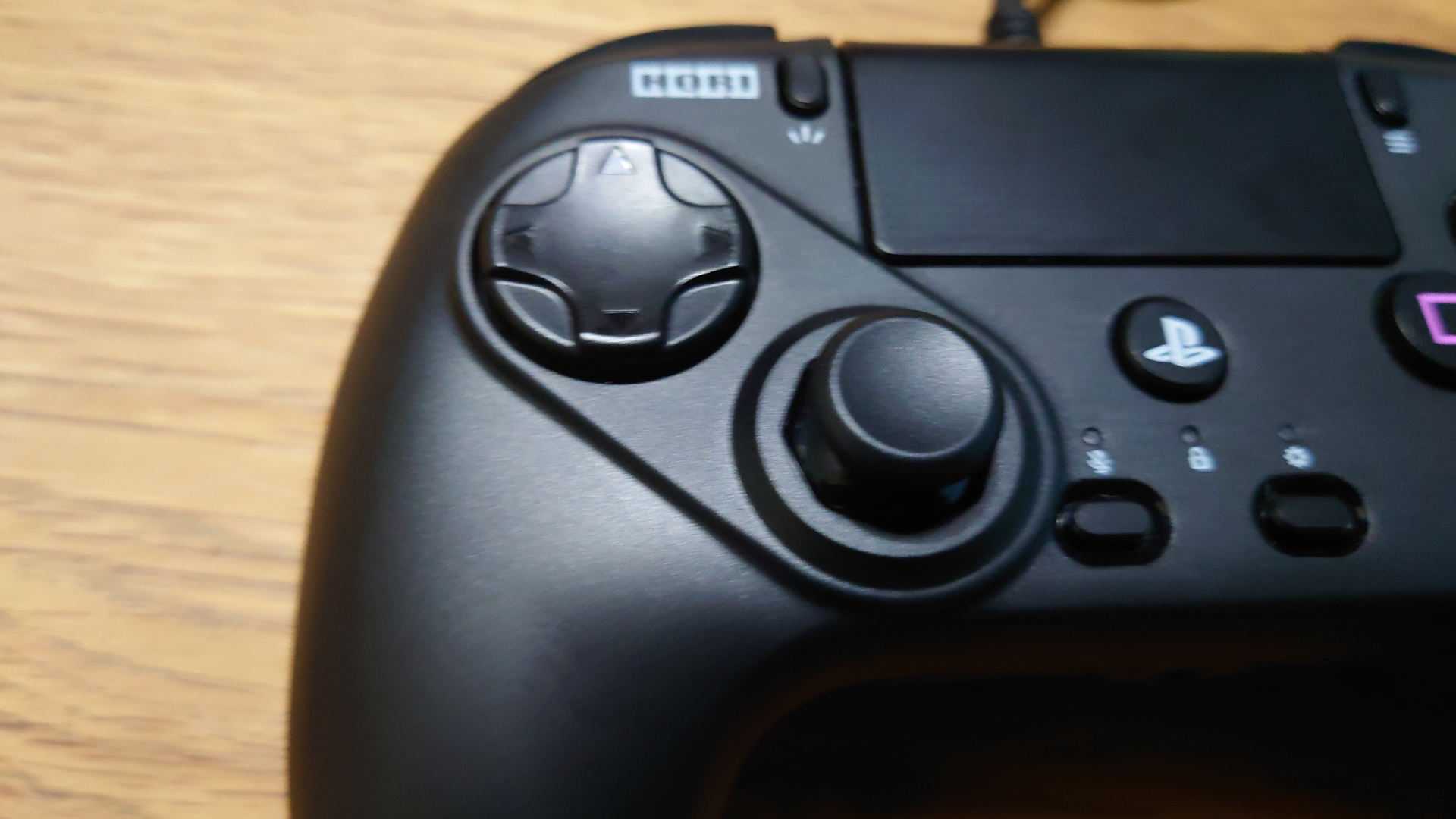
Unfortunately, the same microswitches are not present for the rest of the buttons and triggers on this fight pad which is a genuine shame. This leads to the ultra-lightweight controller, coming in at just 401g, to feel noticeably cheap and hollow in the hand. There's nothing premium about this controller, and I feel that applying the same level of care to the triggers and D-pad would have gone a long way.
Speaking of the D-pad, an essential component in the vast majority of 2D and 3D fighting games, it is far from the best that I've used. While perfectly functional, this D-pad is on the harder and sharper side, providing no real satisfaction in use as there's no tactile feedback of any kind; a real disappointment.
Features
The Hori Fighting Commander Octa has a specific variant optimized for both PS5 and Xbox Series X, our review unit is the former. This means you've also got the Dualsense's touchpad, share button, and start, as well as a dedicated mute button for plugging in via a 3.5mm jack, and corresponding settings toggle.
On the rear of the unit, you've got two dedicated switches; one is for locking accidental button presses such as the start and share, and the other for toggling between platforms. As this is one of the first natively optimized controllers for Sony's latest system, there's a dedicated switch for PS5 and PS4 as well as PC.
What's more, on PC and Xbox Series X, there's the optional Hori Device Manager companion app which allows you to tweak the sensitivity of the D-pad as well as remap any buttons with up to four dedicated profiles. For those gamers on PS5, you'll need to hook up to a computer, make your changes, and then plug back into the console; no ad-hoc option here.
In truth, you're not missing much when forgoing the dedicated software altogether in all honesty. What's there is basic in every sense of the word and likely only to appeal to power users wanting to squeeze every drop of juice from the Hori Fighting Commander Octa.
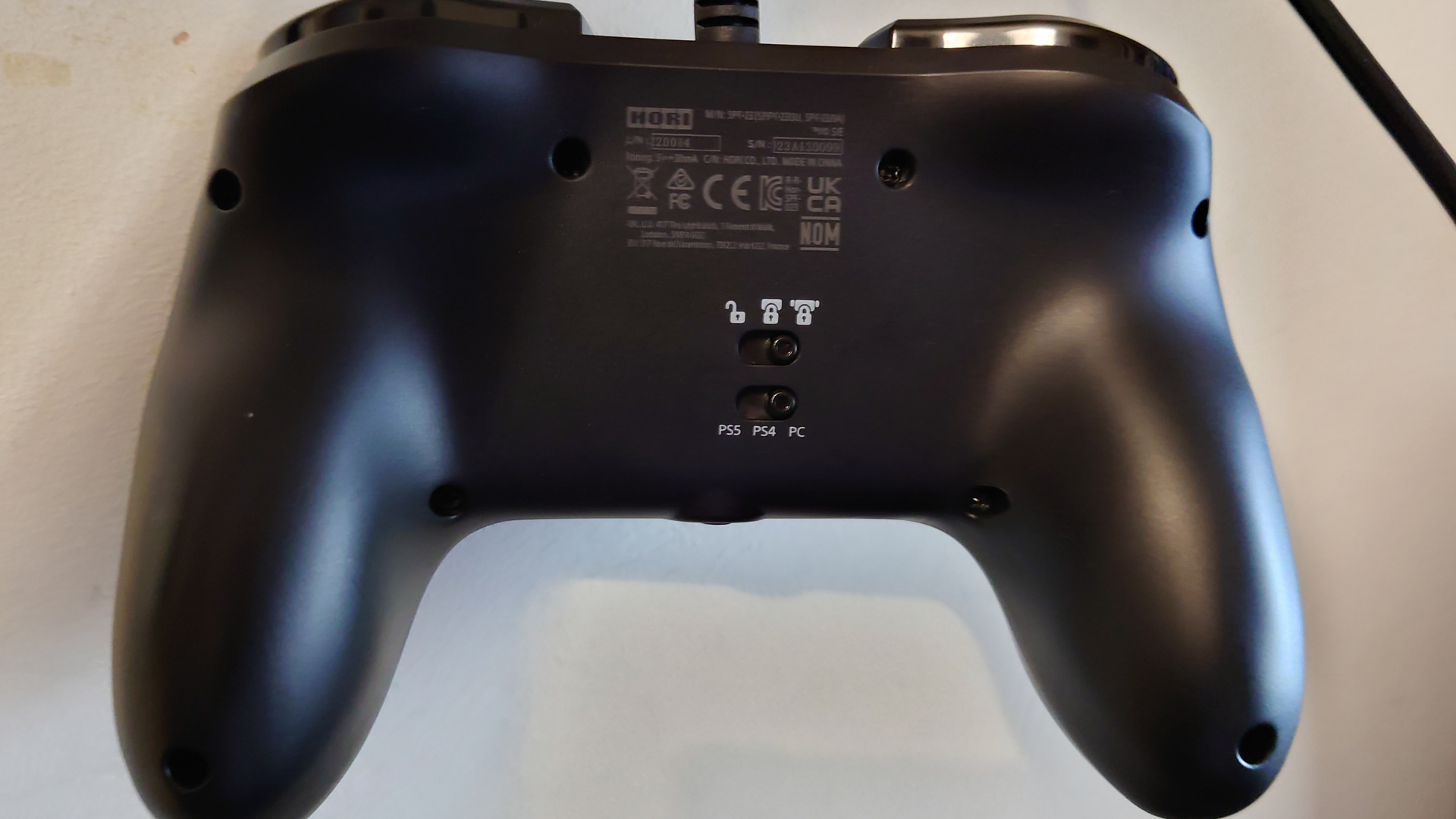
Performance
Despite the mixed opinion I've had so far, the Hori Fighting Commander Octa performs decently in most titles to its credit. In my testing, I used this gamepad natively on both my PS5 for certain games and on my gaming PC for the rest, there was little to differentiate performance between them here, it's plug and play all the way.
It took a fair few minutes of getting used to, however, very quickly the eight-way gated thumbstick became like second nature in many precision-heavy titles and the 6-button microswitch layout came into its own. I was amazed at how consistently I was able to pull off Z-motion and charge inputs in Street Fighter V with a string of different characters in the game's various arcade modes. If you're someone who tends to misinput with your standard Xbox Series X controller or Dualsense then this one may help matters.
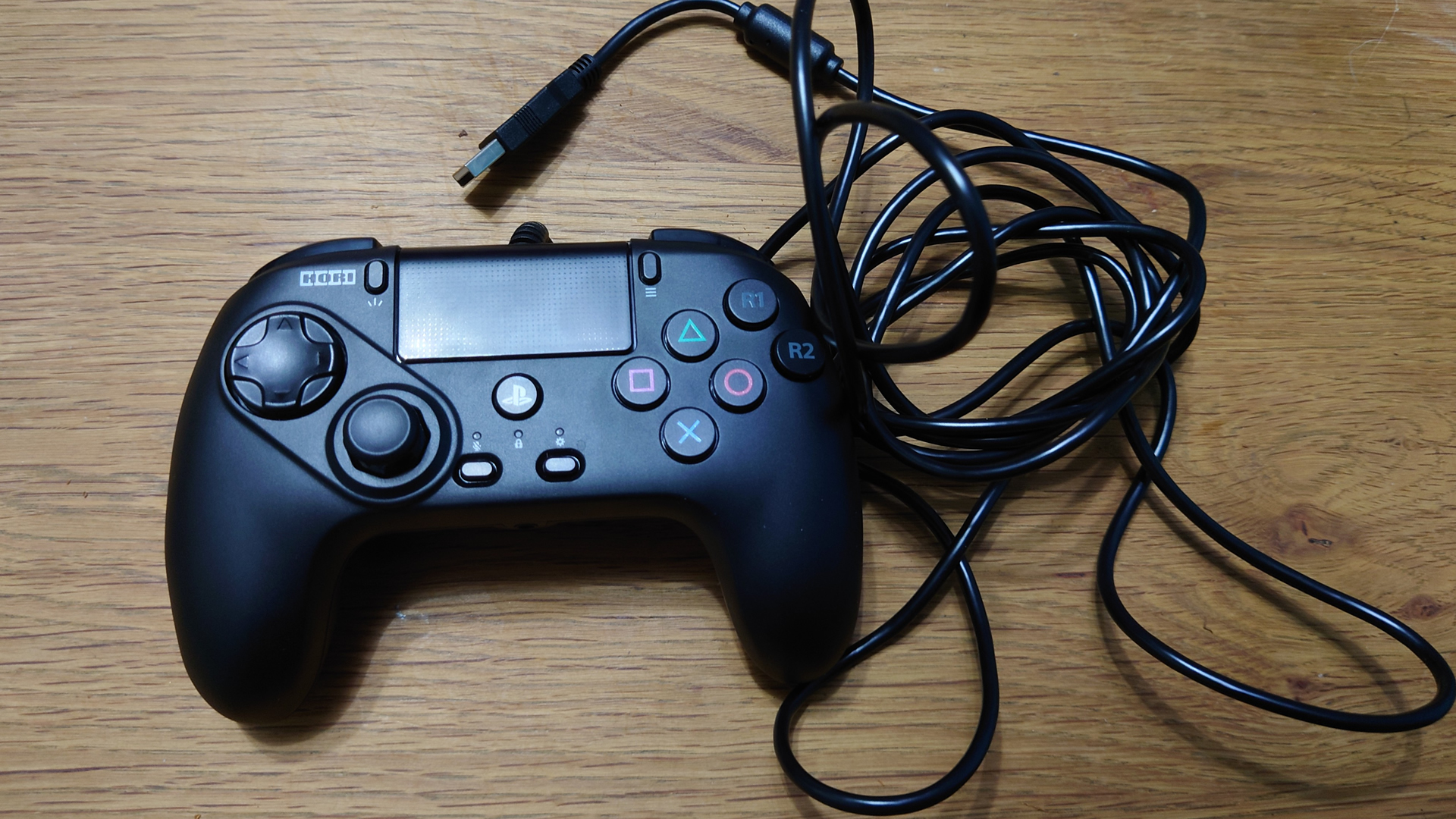
The clicky and responsive feel of the face buttons made all the difference during more intense bouts in both Tekken 7 and BlazBlue: Calamity Trigger. If you prefer your fighters a little more faced-paced then the low actuation here should be greatly appreciated. I was able to clear Ragna the Bloodedge's arcade ladder pulling off some half-decent air combos and keeping the rushdown in full effect with minimal stress. While not exactly 'true combos', I did notice my plays with Dragunov to be far more consistent, too.
The Hori Fighting Commander Octa is built with your more traditional fighting games in mind, though. While I did go through a fair few games in the Netherrealm Mortal Kombat titles, most noticeably X and 11, it's clear that the 6-button layout doesn't lend itself well to titles that utilize a block button. Given that your R2 button is a fair distance away from where your thumb sits, blocking never felt quite right for me. It can be remapped to your liking but was still far from ideal for games like this.
Unsurprisingly, my biggest complaint is still the D-pad which I grew to like less and less the more my thumb was forced to flex between it and the octa-gate stick. After a while, it began to dig into the digit and was genuinely uncomfortable after several hours of play. While the stick is far preferable, there are times when you need purely digital input to make your plays, too, and Hori missed out here.
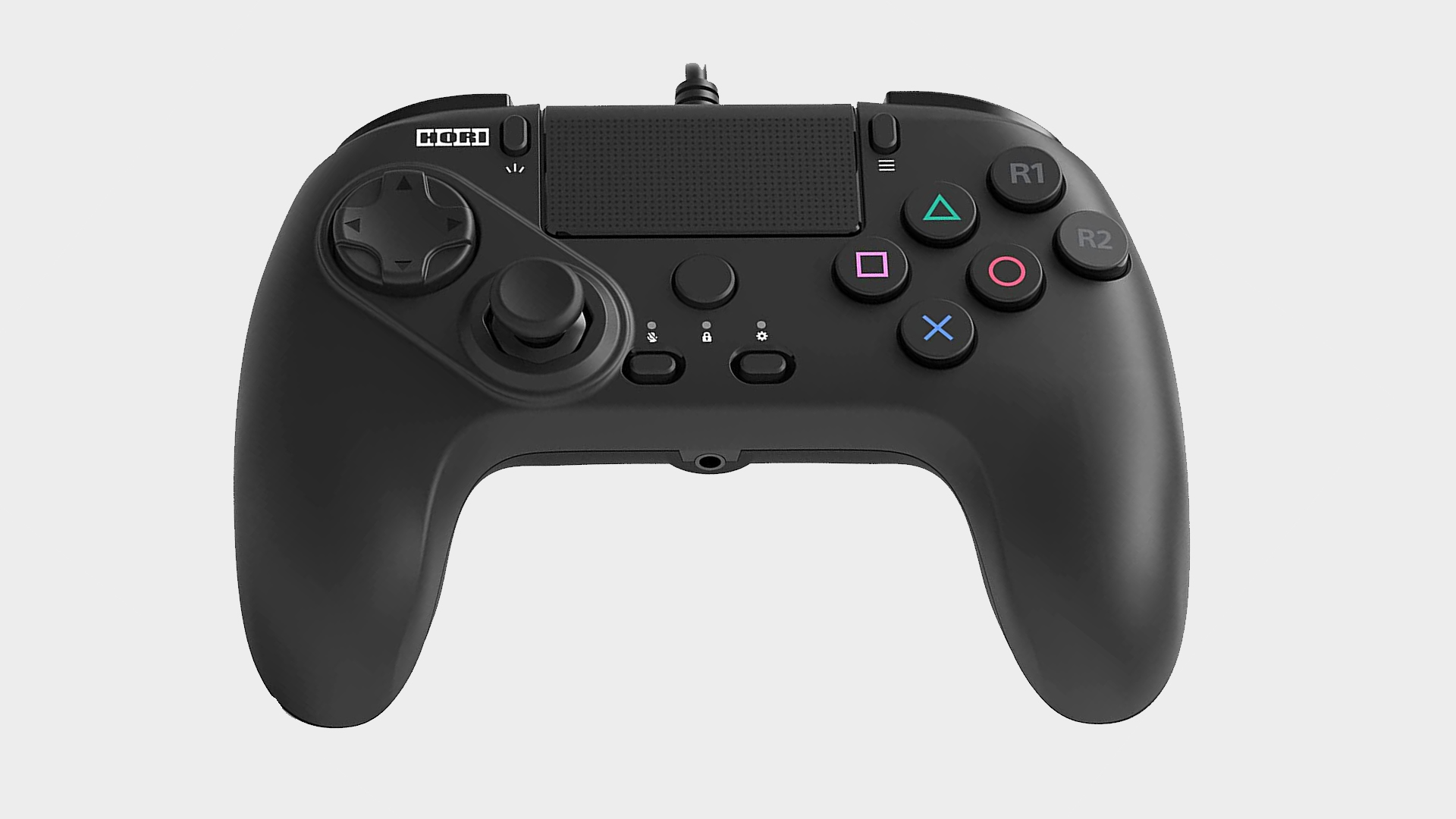
Should you buy the Hori Fighting Commander Octa?
Despite my complaints, ultimately the Hori Fighting Commander Octa is a solid option for gamers looking to take fighting games a little more seriously on PC or their console platform of choice. It isn't particularly expensive either, at $49.99 (Xbox) and $59.99 (PS5), coming in at, or cheaper than, those systems' native gamepads.
You aren't getting a particularly high build quality here, though, and I would argue that PlayStation gamers aren't getting anything special to justify that $10 increase in MSRP. The price hike is likely due to being one of the console's first third-party controllers, and that's a rate that's likely to be reduced by sales, as we've seen from the Xbox-licenced one already.
If you want a 6-button layout controller to enjoy your favorite fighting games then I can ultimately recommend the Hori Fighting Commander Octa for enthusiasts despite its drawbacks, even if it's more reminiscent of gamepads from the 90s than up to modern standards of the day.
How we tested the Hori Fighting Commander Octa
I used the Hori Fighting Commander Octa as my main fight pad of choice in a range of fighting games on both PS5 and PC. This included Street Fighter V, Tekken 7, Mortal Kombat 11, Mortal Kombat X, and BlazBlue: Calamity Trigger. In total, around 15 hours of total playtime were recorded, most of which being arcade ladders and local play in these respective titles. I also got to Chapter 9 in the Mishima Saga (T7) story mode, too, outside of this allotted time.
Find out more about how we test controllers by viewing our full GamesRadar Hardware Policy.

Aleksha McLoughlin served as the Hardware Editor for GamesRadar from June 2021 until August 2022. Her main area of expertise was the PC gaming platform, which comprised buying guides, features, reviews, and news coverage on components and prebuilt machines. She was also responsible for gaming chairs and storage. She now works on a freelance basis while studying to become a university lecturer specializing in English for foreign territories. Prior to joining GamesRadar, she wrote for the likes of Expert Reviews, The Rory Peck Trust, No Clean Singing, Vinyl Chapters, and Tech Spark while also working with the BBC.
